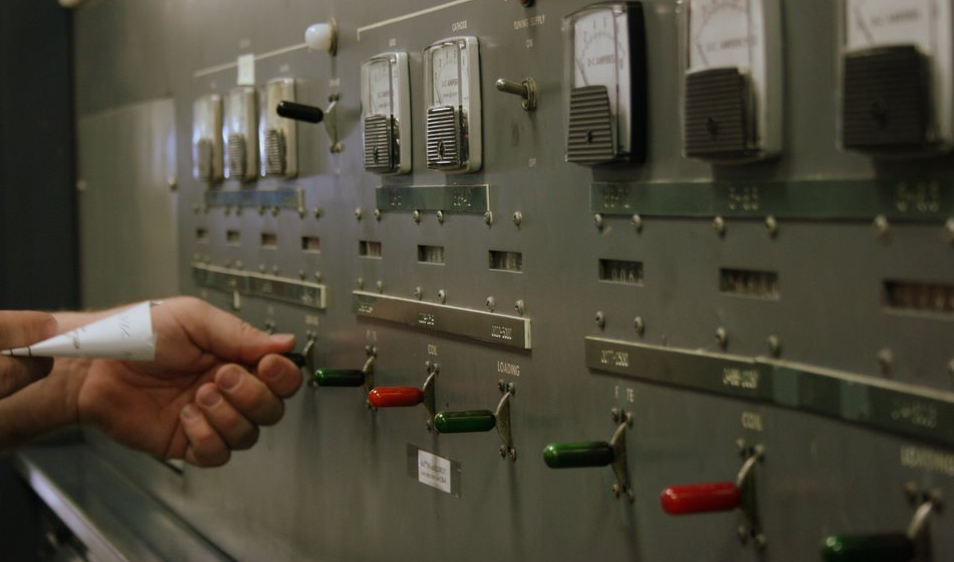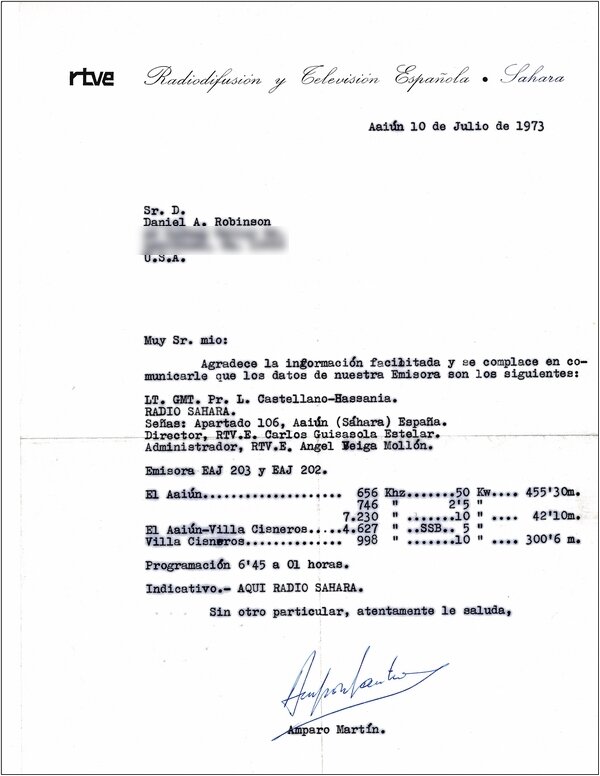Spanish Sahara (Radio Sahara): 1973
/On the top-10 list of DX targets in the 1970s was Spanish Sahara, the broadcast service transmitting from Aaiun in what was then Spanish-ruled Sahara in West Africa. Verification cards and letters were sent to lucky listeners around the world who were able to hear the transmissions which were a mixture of local programs and material from the Spanish national radio. Frequencies on shortwave: 7,230 khz listed as 10 KW and 4,626 khz which was a SSB frequency listed a 5 kilowatts, described as a service for Aaiun and Villa Cisneros, now called Dakhla, about 330 miles south along the coast from Aaiun.
My reception of Radio Sahara was on a Hammarlund HQ-180 receiver, which due to its superb filtering and vernier tuning capability I used to hear numerous African stations. According to the QSL letter received from Radio Sahara, and signed by Amparo Martin, their programming was from “0645 to 01 horas” making this one of the few African stations with a very late (or early in the morning) sign on for listeners in the eastern U.S. (the other being Radio Gambia).
In this recording you hear music to about the 1 minute 10 mark, then station identification by a male announcer “Musica para ellos. Radio Sahara de la red de emisoras [network of stations] de Radio Nacional de Espana” and since Spain was still under the rule of dictator Francisco Franco at the time, this was heard after an military march: “Viva Franco, Viva el Sahara, Viva Espana” followed by what I believe was the Spanish national anthem.
Another frequency for Radio Sahara was 11,805 khz. In 1975, the station sent out a more traditional QSL card (see below). The history that followed saw Spain withdrawing troops from the region on January 12, 1976, and ending its presence in the territory February 26, 1976. Morocco immediately claimed sovereignty over the territory and for years a guerilla war dragged on (1975 to 1991) between the Polisario Front and Moroccan forces. This Wikipedia entry explains the complexities of the situation in what is today called a “partially recognized de facto sovereign state.”
Many thanks to SRAA contributor, Dan Robinson, who shares the following recording





